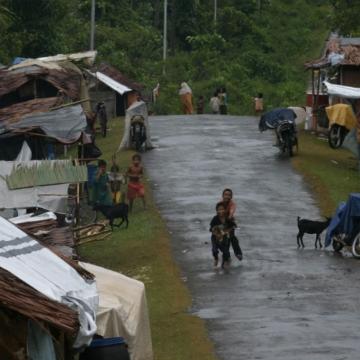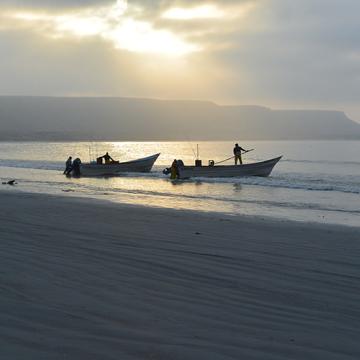-
NewsTaking action in each phase is a community effort
-
NewsSatellite records show spectacular vegetation growth coinciding with the first year of the pandemic. Researchers investigated whether lockdowns played a role.
-
NewsMeet the PlanetLab, learn more about its research focus, lab members' experiences in the lab and the opportunities the lab offers Duke students.
-
NewsSmall-scale fisheries play a significant but overlooked role in global fisheries production and are key to addressing hunger and malnutrition while supporting livelihoods around the world, according to research featured on the cover of Nature.
-
NewsDuke study reveals low levels of common contaminants but high levels of other elements in waters associated with an abandoned lithium mine.
-
NewsMeet the Doyle Lab, learn more about its research focus, a lab member's experience in the lab and the opportunities the lab offers Duke students.
-
NewsJournals focused on ferns, clams, or coral reefs had proportionally more of their articles cited by the federal government when protecting species than more prominent, higher-impact journals
-
NewsA new study co-authored by Binbin Li and Stuart Pimm outlines what is needed for conservation to benefit both nature and people.
-
NewsAn international team of scientists has revealed high levels of toxic metals in global phosphate fertilizers using a variant of the element strontium to uncover such metals in soil, groundwater and possibly the food chain.
-
NewsPh.D. students Keqi He, Rafaella Lobo honored for their respective scholarship.
-
NewsThis year’s global Earth Day theme is “planet vs plastics”, and calls for the rapid phase out all single-use plastics.
-
NewsDespite centuries of colonialism, Indigenous peoples still occupy parts of their ancestral homelands in what is now Eastern North Carolina. Duke environmental scientist Ryan Emanuel, a member of the Lumbee tribe, shares insights about Indigenous survival and resilience in the face of radical environmental changes.
-
NewsScientists in North Carolina have developed a Coastal Home Ownership Model to understand why U.S. coastal property values do not fully reflect climate risks and adaptation costs to sea-level rise.
-
NewsMeet the Patino-Echeverri Lab, learn more about its research focus, lab member's experiences in the lab and the opportunities the lab offers Duke students.
-
NewsLarge cooperatives adopt conservation measures for shifting climate conditions, even without government oversight














